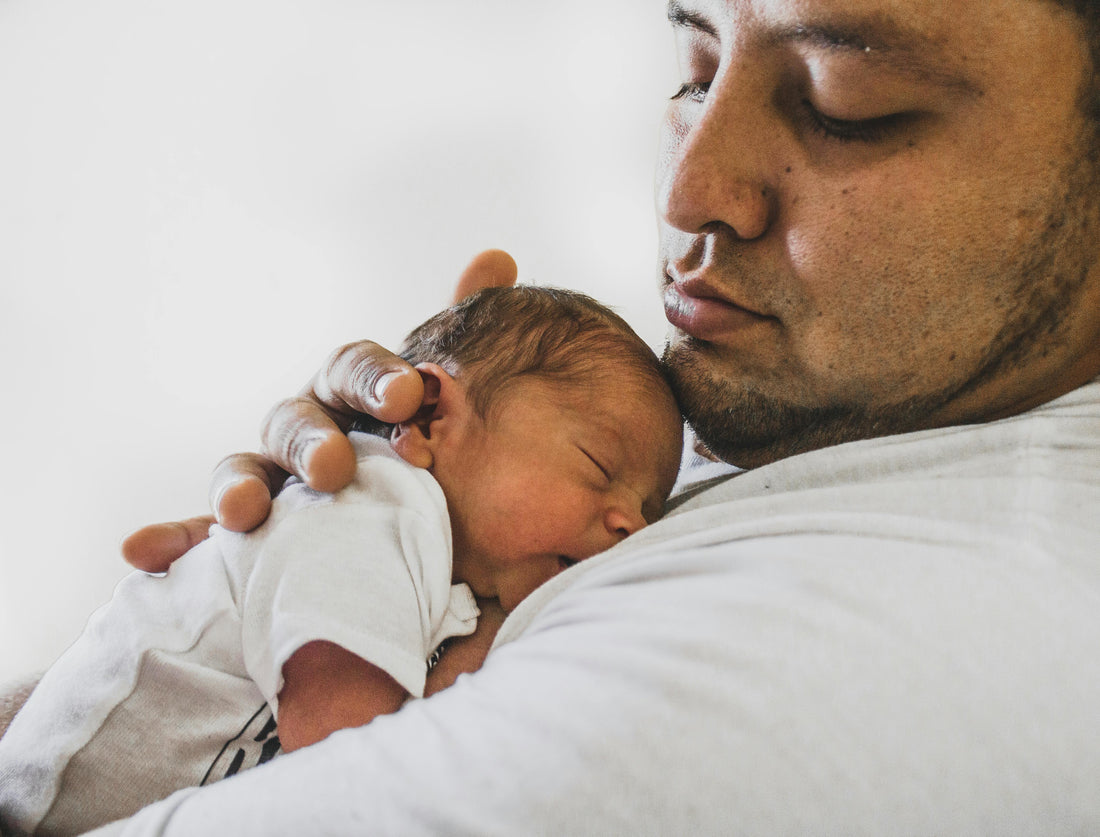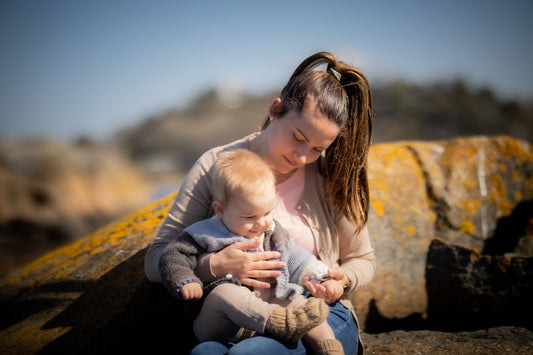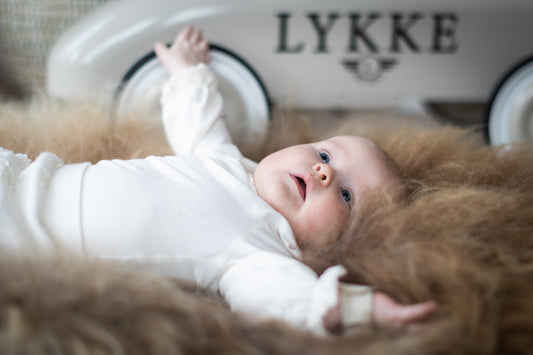
Tips for bonding with a resilient child
As parents, one of our greatest joys and responsibilities is to build a strong bond with our children. A strong parent-child bond is the foundation for a healthy and loving relationship in the child's future. It increases security, trust and attachment for both parents and children. In this article, I share some tips and tricks:
1. Use the five love languages:
When the baby is small, most of us speak all languages intuitively and fluently - 24/7. We praise the baby when he burps (words of appreciation), we are present and just look at his face (quality time), we run to change his diaper in the middle of the night, we buy him all the toys and (unnecessary?) equipment he could want (gifts) and we cuddle him 24/7 (physical touch).
But, eventually, the theory is that we all have our preferred languages. If you have a different language than your child, they may not feel loved, which is important for attachment and the most important relationship in the world.
Some say there are five love languages, others say there are seven. Some call it care language when we talk about our children. Many think it works, some think it's nonsense. I have seen it work in many places myself; at school and also to a great and surprising extent both at home and with others.
Anyway, it's not dangerous to try.
The five languages are:
Words of appreciation
Quality time
Services
Gifts
Physical touch
Read more here.
Let me tell you about my experience.
My five-year-old son was considered a difficult child. I will never forget the day I learned about love languages at work.
I explained it to both of them, and the youngest was clear in his message; I need lots of cuddles. I was surprised, as as a baby he would have liked to push me away and not had time to cuddle.
The next morning we spent ten minutes in bed and I got a real surprise; the kid who had previously spent half an hour not getting dressed, dressed himself in five minutes🙊. Furthermore, the morning and the rest of the day went better than ever before. Maybe a positive spiral, with a good start to every morning.
I never stopped. The elder didn't get the same "medicine." He needed words of appreciation.
Spending quality time with your child is essential for building a strong bond. To make sure we meet this need, we have invented something we call Golden Time . Here, the child decides everything we do for ten minutes every day, like an important date. For the adult, it is active listening and proper presence that counts! Watch the video here
2. Talk about everything:
To "force" open communication and promote good mental health, I have come up with three questions that are asked at the bedside every night:
-
Have you been upset about anything today?
-
What have you been proud of?
-
What have you appreciated?
For me, this is more important than evening prayer. Showing that one can accept what is supposed to be, and talking about difficult things in itself, is healing in itself. But, even more important is the awareness that is increased over one's own interpretations of something that has happened, which are often more negative than necessary. We explore more, possible interpretations and thus reduce the child's chance of remaining in the victim role.
When we talk about pride, we are just as often talking about manners and values as we are talking about activities they have done well. We want children to have good self-esteem and be proud of, for example, having been thoughtful, comforting or helpful, regardless of whether they have scored a goal or gotten everything right on a test.
Knowing that you have to tell someone about at least one thing you appreciate every day increasingly trains your brain to notice the positive. With a positive mindset, you can see a beautiful sunrise or appreciate a good smell or hug, completely independent of other problems. Has your brother hit you or you are short of money, there is always something good happening🤍
Again, active listening and 100% presence are key.
3. Show unconditional love:
Unconditional love is fundamental. Show and tell your child that you love them just as much no matter what - forever and ever. No matter what they do wrong and no matter how much they annoy you. When they make mistakes and feel useless, their ability to speak and their resilience increase when they are convinced that mom and dad/co-mom love them all the way. There is no action or choice that will change this.
Ever since the children were very young, I have taught them by asking them; how much does mommy love you? I have shown them with my hands; so much, so much or so much? They have all answered so much (arms fully extended). But, some have wondered, when I have asked; what about when you do something really wrong, like hitting your brother, or when you scream and yell and don't want to brush your teeth? Then some of the children have actually hesitated a bit, before they have shown me the "medium size" of love with their hands💔
4. Create some daily routines and routines:
Routines provide stability and predictability, which builds security. Security is the key to robust children and also a good relationship with your child. Children like to know what happens at mealtimes, bedtimes, morning routines and other things in everyday life. Most children are creatures of habit, and good routines increase their energy for cuddling and learning.
5. Celebrate progress, desired behaviors, and achievements:
Show that you are proud of them as often as possible. Su builds up the child's inner "bank account", which is important when you as an adult actually have to criticize. Many believe that we need five positive feedback for every negative one, to be in balance. So; be proactive by "catching them being or doing something good". Be specific in your praise and feel free to use their name (more on effective words of recognition here).
Authenticity and specific compliments are key here.
6. Show empathy and understanding:
Empathy and understanding are important parts of any strong relationship. Try to understand and see the matter from the child's perspective. You can validate the feelings, while stopping or condemning an action. All feelings are allowed. All actions are not allowed. PS: do not try to explain why something is wrong, while the child is still in "crisis mode".
7. Long-term vs. short-term love: Dare to be a leader who sets boundaries.
Maybe you've heard of little emperors or little princesses? They boss adults around, and think the whole world is about them - only. They can become so insufferable that they end up only being liked by their parents🥲.
To avoid this, you must not fall into the trap of complacency. You must dare to say no when you mean no, and you must not let young children decide things they have no idea about. They may well be allowed to choose blue or green stillongs, but not whether to have stillongs. They may well choose carrots or broccoli for dinner, but not whether vegetables should be served. The choices should be increased in line with their developmental level.
So; you decide what the children do not have the prerequisites to understand the long-term consequences of (here health and diet). Dare to take the fights and be sure to carry them out until "the battle is won". It is better to take fewer fights than to break your word and make poorly thought-out threats.
If you are going to "threaten" the children to do something, I prefer to call it understandable and natural consequences , rather than threats.
An example is that you don't threaten "no TV/iPad for a week if you don't eat your food". A much better, more understandable choice not to eat is not having dessert, or possibly not having other meals afterwards (mine are served the same dish for the next meal. More about eating here).
Setting boundaries is long-term love, giving in to letting children decide everything is short-term love. Remember that the reaction and anger will pass, not the respect for you as a parent. I promise that what you do to your four-year-old will be in the subconscious of your future fourteen-year-old. Show that you dare to lead!
Must cost without it being fun
8. Be a role model who dares to show vulnerability and mistakes.
Perhaps unfortunately, children learn more from what we do than what we say. That means perhaps we have to try to show and be what we want to teach. This is probably the hardest part. Showing and teaching everything from active listening to saying sorry and showing that things can be okay again after an argument. Easier said than done!
But, the good news is that you do NOT have to be perfect or feel guilty if you as a parent have one or more bad days. The tips are intended as tips and tricks to make the parenting job a little easier. Not demands or anything that will harm the child if you don't do it.
Children can endure a lot; at least those who have not been exposed to trauma in early childhood.
Remember that the parent-child bond is an important and lifelong relationship that shapes the child's (mental) health and ability to create their own joy. However, it can withstand a lot, and the child will think that YOU are the very best (at least until they are teenagers🤣).








